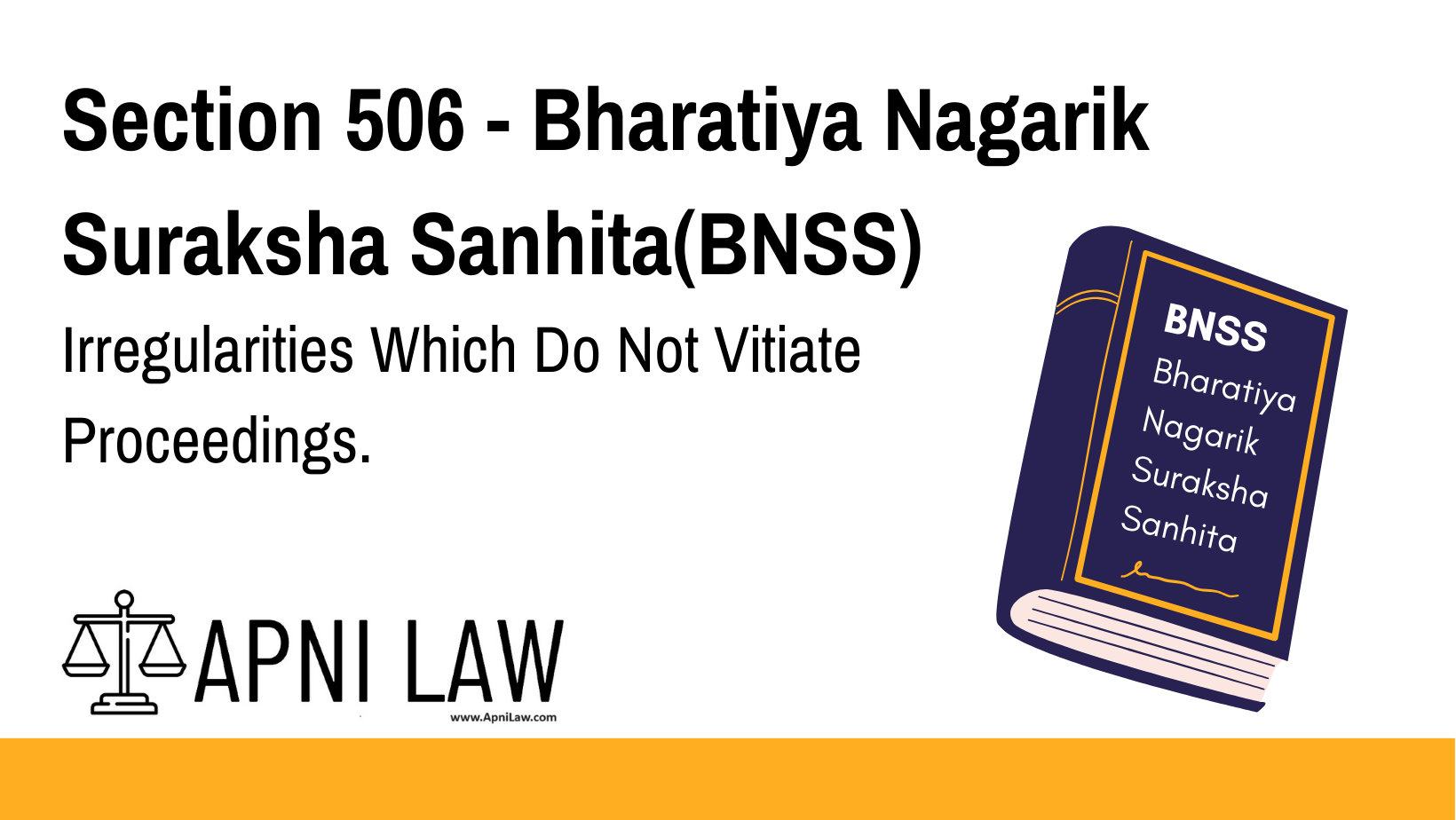Code: Section 506 BNSS
If any Magistrate not empowered by law to do any of the following things,
namely:—
(a) to issue a search-warrant under section 97;
(b) to order, under section 174, the police to investigate an offence;
(c) to hold an inquest under section 196;
(d) to issue process under section 207, for the apprehension of a person within
his local jurisdiction who has committed an offence outside the limits of such
jurisdiction;
(e) to take cognizance of an offence under clause (a) or clause (b) of
sub-section (1) of section 210;
(f) to make over a case under sub-section (2) of section 212;
(g) to tender a pardon under section 343;
(h) to recall a case and try it himself under section 450; or
(i) to sell property under section 504 or section 505,
erroneously in good faith does that thing, his proceedings shall not be set aside merely on
the ground of his not being so empowered.
Explanation of Section 506 BNSS
Section 506 of the BNSS deals with procedural irregularities carried out by a Magistrate who lacks the legal authority to perform specific functions. The key principle here is that good faith actions, even if done without proper authority, do not invalidate the proceedings. This provision ensures that minor procedural errors do not derail the entire judicial process, provided the actions were not carried out with malice or intent to deceive.
Key Provisions:
- Good Faith Requirement: The irregularities must be committed in good faith, without malice or intent to harm.
- List of Actions: Covers actions like issuing search warrants, ordering investigations, holding inquests, and selling property.
- Legal Effect: The proceedings remain valid despite the lack of proper authority.
Illustration
Example 1: Issuing a Search Warrant Without Authority
A Magistrate mistakenly issues a search warrant under Section 97, even though they lack the legal power to do so. Since this was done in good faith, the court proceedings will not be invalidated because of this error.
Example 2: Ordering Police Investigation Without Jurisdiction
A Magistrate orders police to investigate an offense under Section 174, but they do not have jurisdiction. Since the order was made in good faith, the proceedings will still stand unless proven otherwise.
Common Questions and Answers on Section 506 BNSS
1. What does “good faith” mean in Section 506 BNSS?
- Answer: Good faith refers to actions taken honestly and without intent to deceive, harm, or cause injustice.
2. Does this section protect serious legal violations?
- Answer: No, Section 506 applies to procedural errors, not criminal acts. Serious legal violations can still lead to the invalidation of proceedings.
3. Can an irregularity under Section 506 be challenged in court?
- Answer: Yes, but the challenge must prove bad faith or intentional misconduct. Otherwise, the proceedings remain valid.
4. What happens if the Magistrate acted in bad faith?
- Answer: If bad faith is proven, the proceedings may be set aside, and legal action could be taken against the Magistrate.
5. Does this section apply to all judicial officers?
- Answer: No, it applies specifically to Magistrates who perform functions outside their legal authority in good faith.
Conclusion
Section 506 BNSS ensures the continuity and fairness of judicial proceedings by protecting actions done in good faith, even when performed without legal authority. This provision balances the need for strict adherence to legal procedures with the practical realities of judicial administration, minimizing the impact of honest mistakes.











